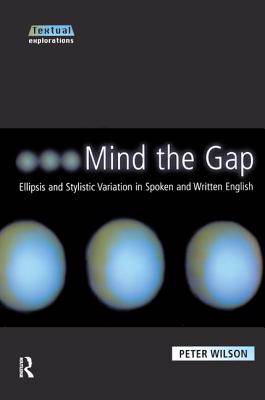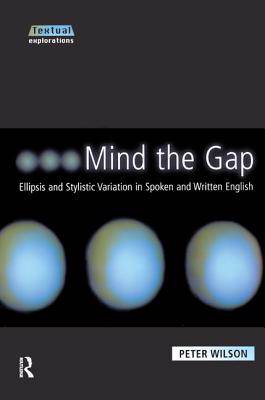
- Retrait gratuit dans votre magasin Club
- 7.000.000 titres dans notre catalogue
- Payer en toute sécurité
- Toujours un magasin près de chez vous
- Retrait gratuit dans votre magasin Club
- 7.000.0000 titres dans notre catalogue
- Payer en toute sécurité
- Toujours un magasin près de chez vous
Description
We rarely speak or even write in the complete sentences that are often held to be the ideal form of linguistic communication. Language is, in fact, full of gaps, because speakers and writers operate in contexts which allow bits of language to be understood rather than expressed. This book systematically analyses this inherent gappiness of language, known as ellipsis, and provides an account of the different contexts, both linguistic and situational, which affect its use. Peter Wilson draws on a wide variety of examples of spoken and written English, and both literary and non-literary to present a comprehensive classification of elliptical language that ranges from the conversational fragment and the advertisement to the dialogue of Shakespeare and imagist poetry. Mind the Gap shows how ellipsis is a feature of major structural and stylistic importance to our understanding of spoken and written language, and will be of interest to undergraduate students of linguistics, literature, communication and the interrelations between them..
Spécifications
Parties prenantes
- Auteur(s) :
- Editeur:
Contenu
- Nombre de pages :
- 252
- Langue:
- Anglais
- Collection :
Caractéristiques
- EAN:
- 9781138161962
- Date de parution :
- 19-01-17
- Format:
- Livre relié
- Format numérique:
- Genaaid
- Dimensions :
- 156 mm x 234 mm
- Poids :
- 530 g

Les avis
Nous publions uniquement les avis qui respectent les conditions requises. Consultez nos conditions pour les avis.






